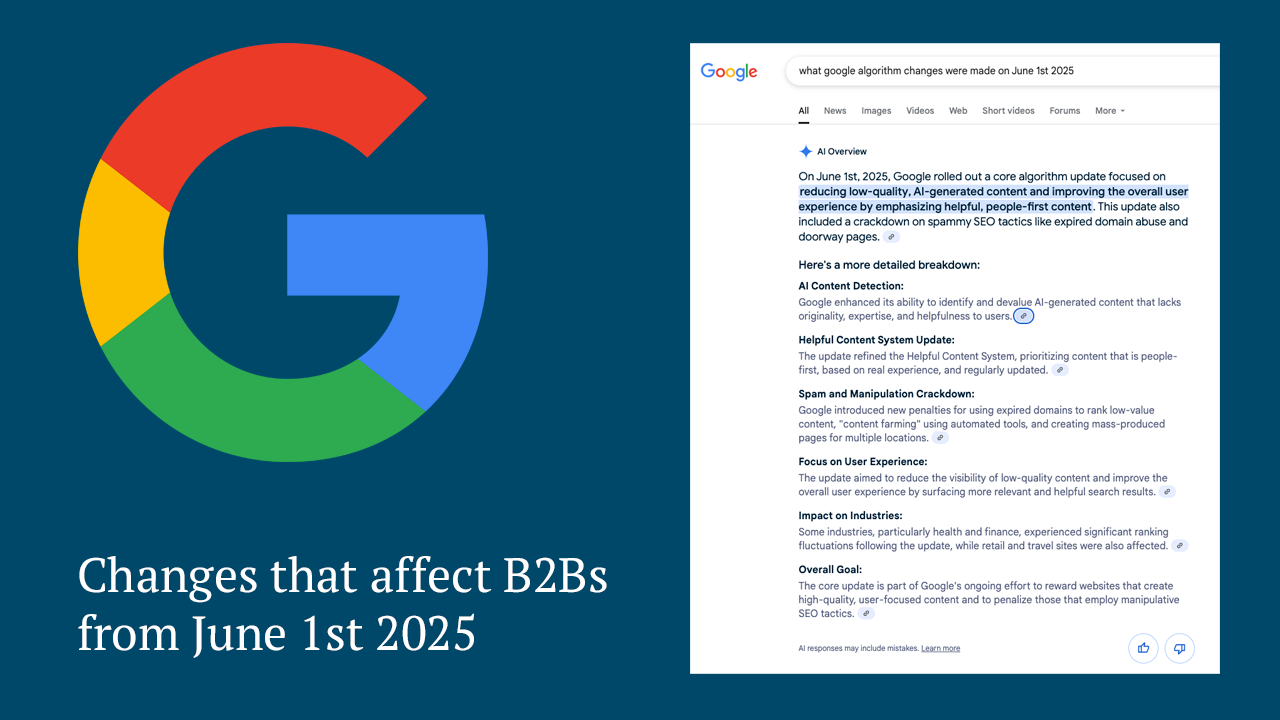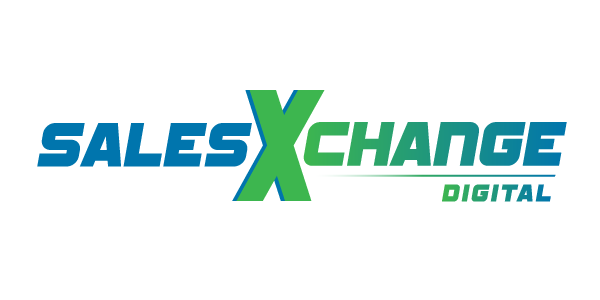Google Just Made Most B2B Marketing Strategies Obsolete
Jun 16, 2025
(And No One Told You)
In June 2025, Google began penalising websites using AI-generated or so-called "low-value" content. This wasn’t a vague rumour — Google’s own AI is stating it as such. The result? A major algorithm update that de-indexes or demotes pages based on automated content signals, lack of originality, or perceived quality.
The business world has been seemingly been duped into pleading with Google to crawl its websites. Google has now completed its task, absorbed all the intellectual property it needs, and now it doesn't need you anymore, and it certainly does not to keep paying vast amounts of money on storage and energy to process your indexed content for free.
Now, your only option is to pay-to-play. That means a rapid increase in Google's revenue for pay-per-click if you want to be found at all. And, as you probably are aware, you, we, have no recourse as no one has any right to be crawled and appear on Google's search platform. Google is very much the commercial big-tech giant able to call the shots.
If your B2B marketing team has leaned into AI tools to write content, blogs, or even thought leadership pieces, your content visibility may already be under threat — or gone.
Who Decides What’s ‘Low Value’?
That’s the million-dollar question. The answer: Google. They’ve made themselves the arbiters of online value — deciding what gets seen and what disappears from the search index. But here’s the kicker for B2Bs: most high-value B2B content will never have B2C-style engagement, clickbait appeal, or virality. That doesn't mean it’s low value — it means it’s niche.
You may have used AI to 'adapt' your intelligence, to make your written content more accurate, readable, or even shorter. AI will sail through that task with ease. So much so, that another AI can pick up on the fact that your article is perfect, and therefore Google, will not permit your 'adapted' AI to compete with its own.
But that nuance doesn’t matter to an algorithm that favours mass attention. Not only that, Google has no problem with you paying for a pay-per-click advert to promote any type of content you want, AI generated or not. As long as they get paid. Apart from the hypocrisy and irony, so what happens next?
Why This Is a Disaster for B2Bs
- Your SEO-heavy strategy may now be delivering zero ROI
- Your team may be creating content that no one will ever find
- Your PPC campaigns are more expensive than ever, and still not converting
- Your buyers? They’re anonymous. They’re not clicking, they’re calculating
Most B2B decision-makers don’t want to be found in your funnel. They want content they can trust, access without giving up their data, and the ability to self-educate until *they* are ready to engage.
Here’s What Smart CEOs Are Doing Instead
I built the SalesXchange Strategy to solve this exact problem *before* it became a crisis. This isn’t theory. This is a proven Go-To-Market system that works without relying on SEO, PPC, cold outreach, or AI-written spam.
- Open-access video, podcast, and live stream content that builds trust at scale
- Direct Total Addressable Market (TAM) engagement every week, with no reliance on search engines
- A full 20-module training programme to align Sales, Marketing, and Production
- Execution-ready assets that replace traditional Martech and enable rapid rollout
The Real Opportunity? First Mover Advantage
Right now, most of your competitors have no idea this is happening. That gives you a window. While others pour more money into a strategy Google is actively suppressing, you can shift focus and dominate your market through visibility, not guesswork.
The choice is simple: adapt now, or get buried beneath an algorithm that doesn’t serve you.
“You don’t have a visibility problem. You have a reliance problem — on platforms that were never built for B2B.”
Watch the Full Strategy Now
If you’re a CEO, Founder, or Advisor in Tech, SaaS, Accountancy, or B2B Services — this 30-minute strategy video is the most important presentation you’ll watch this year.

